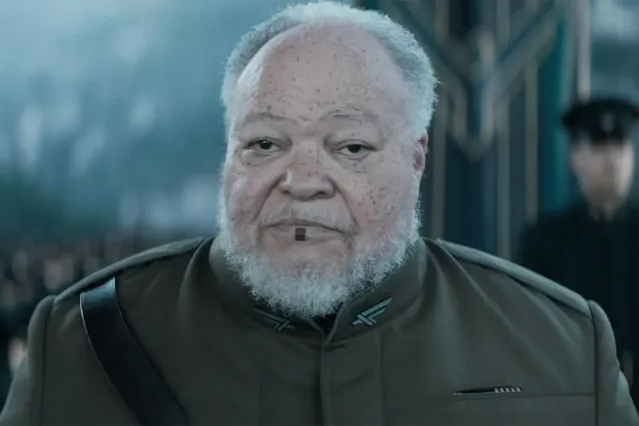The director of "Dune: Part 2" shares the toughest decision he had to make during the adaptation process
Denis Villeneuve acknowledges that there is inevitably some alteration or distortion of the original material when adapting it for a different medium. However, he reveals that there is one character in particular that he feels a deep sense of sadness about having to remove from the final product.
Despite having two movies each exceeding two hours in length, director Denis Villeneuve couldn't include every aspect of Frank Herbert's Dune in his adaptation. In a recent interview with EW for our cover story on Dune: Part Two, Villeneuve discussed the most difficult omission he had to make from the source material.
"When adapting, there's inevitably a degree of disruption to the original material," Villeneuve explains to Entertainment Weekly. "Adjustments must be made, alterations must be implemented, and difficult decisions must be faced."
In Dune: Part Two, there is a willingness to deviate from Herbert's original storyline. For instance, the character of Chani, played by Zendaya, exhibits a greater sense of independence compared to her portrayal in the book. In the film, she openly challenges the ascension of her lover, Paul Atreides, portrayed by Timothée Chalamet, to the role of Fremen messiah, rather than simply remaining loyal to him. Additionally, Paul's sister, Alia, is depicted only as a fetus, albeit one with heightened awareness, and briefly appears as a vision of her older self in a dream sequence, with Anya Taylor-Joy playing the role.
However, in Dune: Part Two, several significant characters from Herbert’s novel do not make an appearance on screen. For instance, although Lea Seydoux portrays Lady Margot Fenring, an operative of the Bene Gesserit, her husband, Count Fenring, a powerful ally of the Emperor (played by Christopher Walken in the book), is not depicted. Additionally, viewers do not witness any further scenes involving Paul’s mentor, Thufir Hawat (portrayed by Stephen McKinley Henderson), despite his survival in the book's events. Henderson's inclusion in the film's cast list on Wikipedia prior to its release led many to anticipate a more substantial role for his character in the film adaptation, but unfortunately, this did not come to fruition.
Villeneuve acknowledges that one of the toughest decisions he had to make was regarding the character Thufir Hawat. Despite his love for the character, he made the decision early on to focus primarily on adapting the Bene Gesserit storyline. Consequently, Mentats like Thufir are not as prominent in the adaptation as they are in the original material, but he explains that this was a necessary compromise in the adaptation process.
Mentats serve as the human equivalent of computers in the world of Dune, where artificial intelligence has been eradicated in the Butlerian Jihad. Two alternatives have emerged to fulfill the tasks once handled by thinking machines: the spice melange, which expands consciousness and aids the Spacing Guild's navigators in safe interstellar travel, and Mentats, individuals trained to conduct complex mathematical and strategic analyses from a young age. Like Maesters in Game of Thrones, each noble Great House in the Dune universe employs its own Mentat.
Hawat, serving House Atreides, showcased his abilities in 2021's Dune when Duke Leto Atreides pondered the cost of the imperial delegation announcing his stewardship of Arrakis. Piter de Vries, the eerie Mentat of House Harkonnen, met his demise during Duke Leto's attack.
In the narrative, the Baron captures Hawat, compelling him to become the new Mentat for House Harkonnen—a poignant tale of a noble figure forced to serve the enemy responsible for the deaths of his loved ones, seeking redemption. However, with limited screen time, the film primarily focuses on the machinations of the Bene Gesserit, even as it builds to Paul's confrontation with Feyd-Rautha Harkonnen. Princess Irulan and Reverend Mother Gaius Helen Mohiam play pivotal roles, emphasizing the complexity of alliances.
Should Villeneuve proceed with adapting Dune Messiah, we anticipate further exploration of the Bene Gesserit's schemes, with Irulan and Mohiam playing significant parts. In the interim, the Mentats, though integral, take a back seat in the narrative.









0 Comments